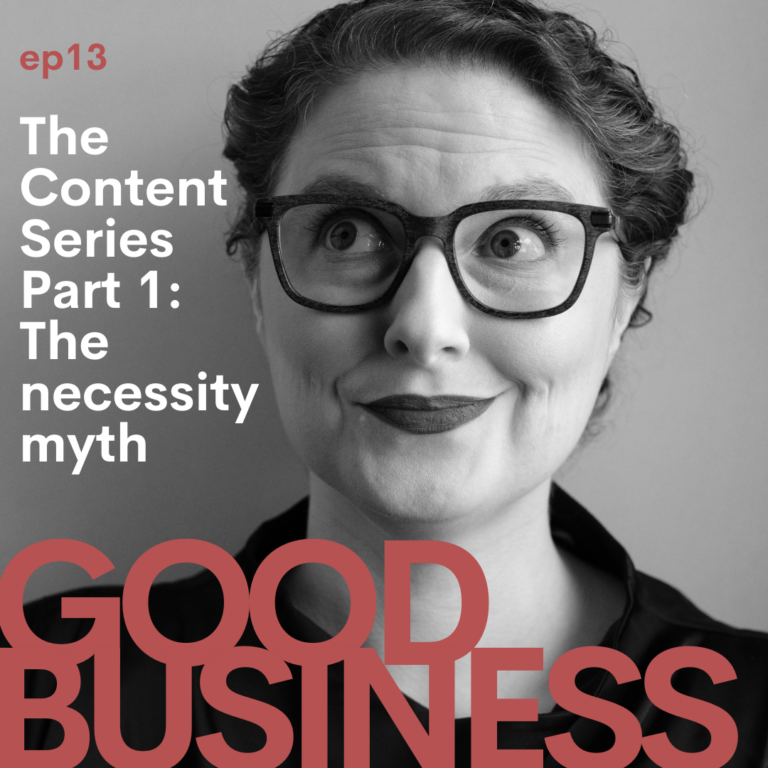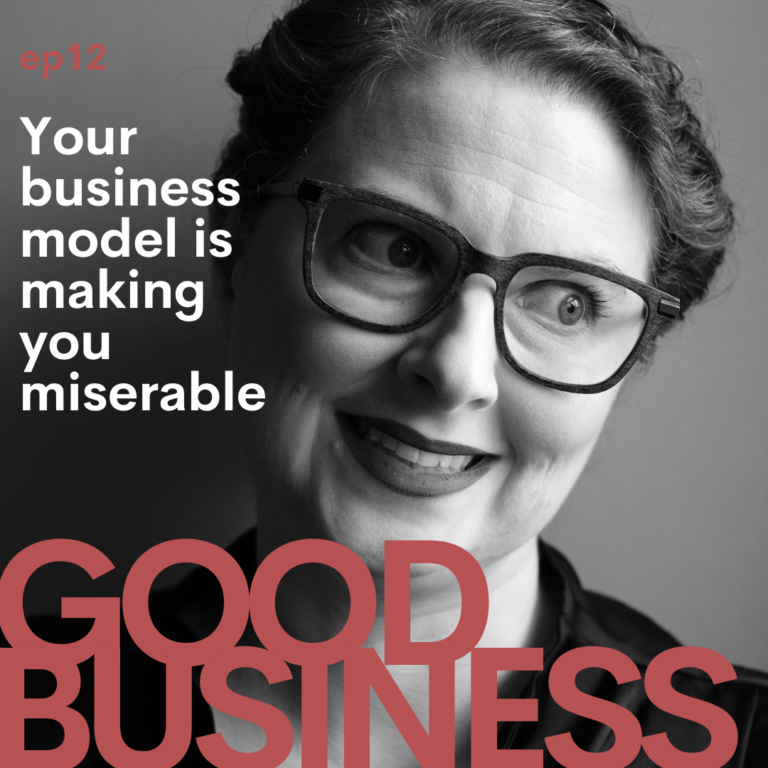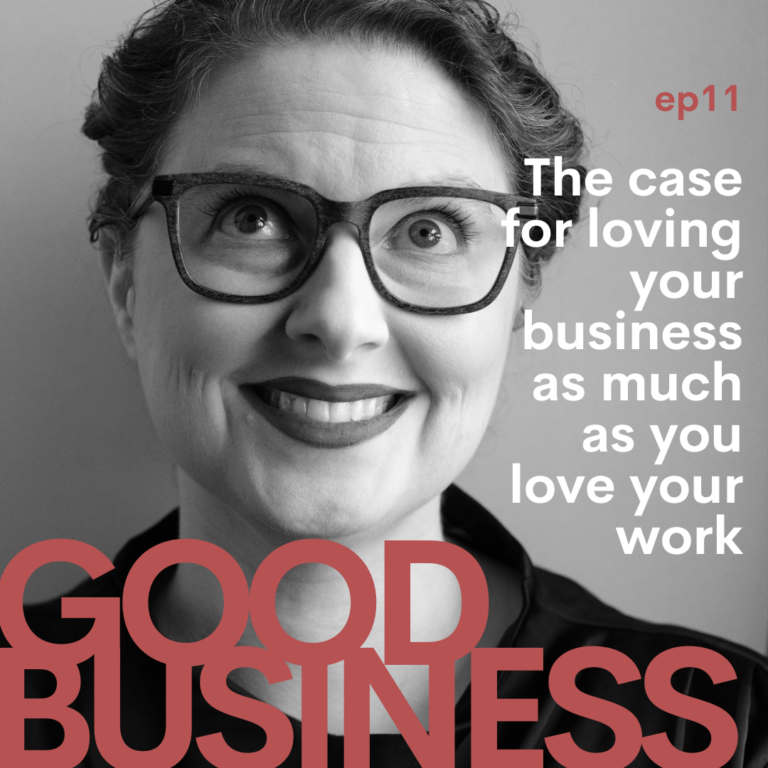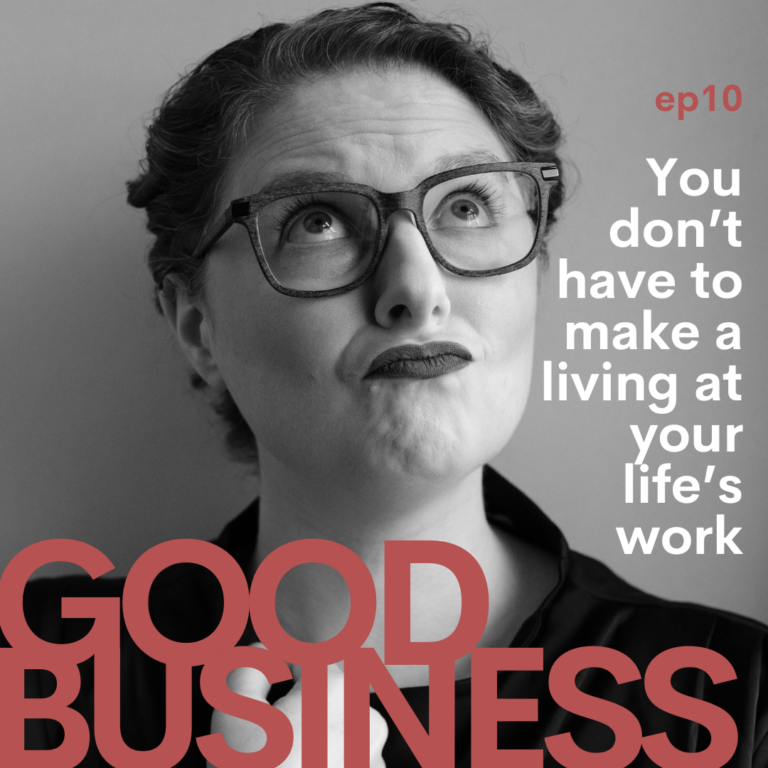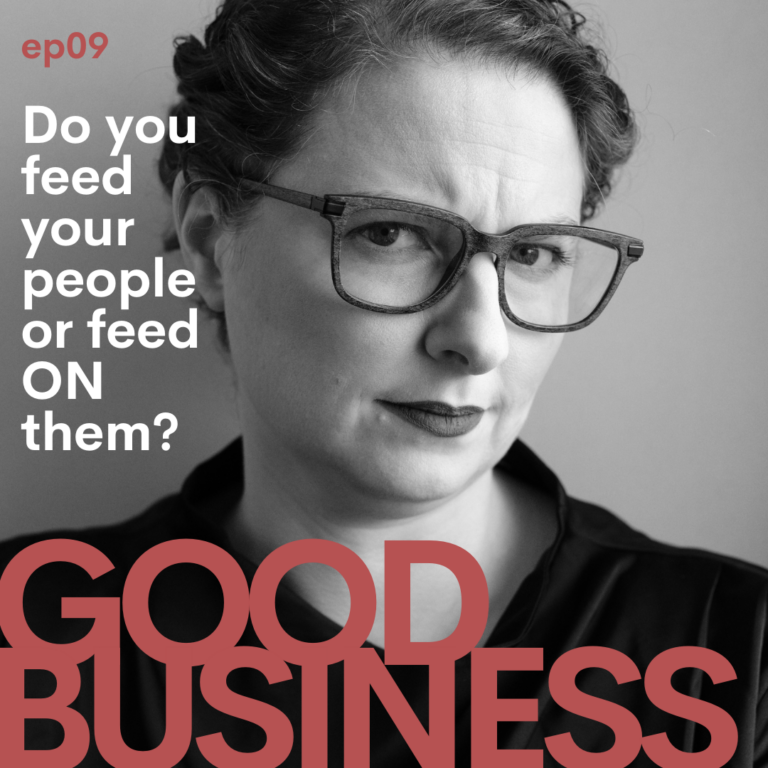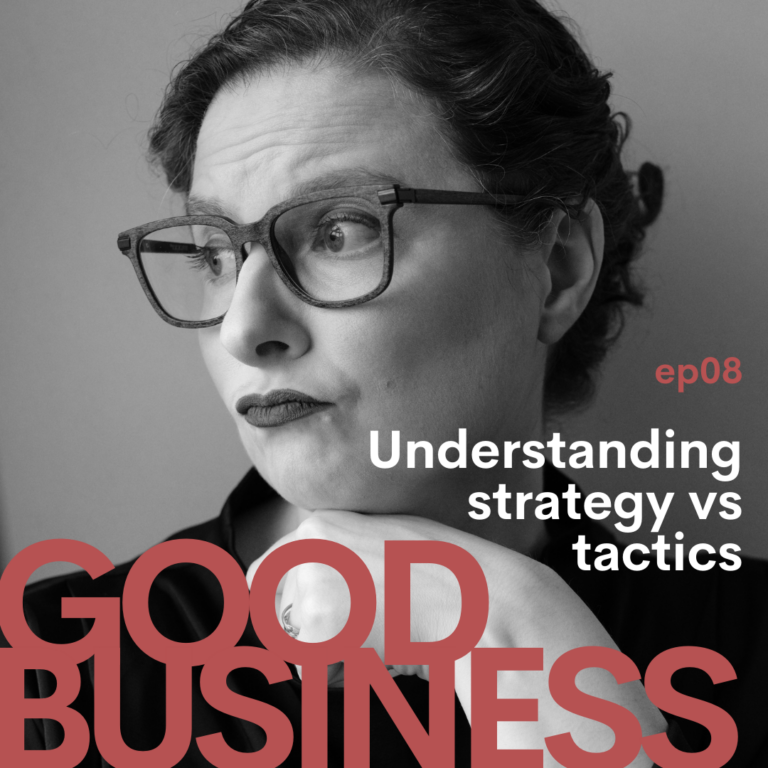Are you wondering if you should quit? Keeping the focus on non-client business initiatives (because knowing when to quit a client project is a whole other series), this episode teaches a methodology including 4 key questions to help you evaluate when to stick with something or let it go. Learn how to identify your motivations, confront self-doubt, and make decisions that align with your goals and values.
[NOTE: The text below was generated with the help of AI. I do not advocate for the use of AI in copywriting in general, but see it as a useful tool for improving efficient editing of my own creative content. None of the actual content of the episode or the transcript was AI-generated. I just let the computer help me clean up the text so it can be more easily understood and consumed. ~i.]
Reaching a Milestone and Reframing Quitting
This episode marks the 60th of the podcast, a surprising milestone considering most podcasts fizzle out around episode 10. Illana celebrates this achievement and uses it to introduce the core theme: deciding when to stick with something or when to quit.
While societal pressure often pushes us to “finish everything,” quitting can be a valuable strategy. Illana references a previous episode exploring this concept and shares personal experiences with quitting.
Focus: Non-Client Business Initiatives
It’s important to clarify the specific context of this episode: evaluating when to quit non-client-related business initiatives. These are projects you undertake to promote yourself or your work, not projects directly tied to clients. Examples include unfinished books, podcasts with low listenership, or sporadic blog posts.
4 Core Questions for Evaluation
Illana outlines four key questions to guide your decision-making process:
-
Why did you start and what was the desired outcome? Aim for at least two areas of satisfaction (e.g., personal growth, financial gain) connected to your desired outcome. Having multiple areas of satisfaction provides better motivation during challenging phases. Consider aiming for three to four areas for increased resilience.
-
Why do you want to quit or stay? Be honest with yourself and verbalize your reasons. This can help identify underlying fears and self-doubt disguised as logical justifications. While fear and self-doubt are valid reasons to quit if overwhelming and detrimental to your mental health, self-awareness is crucial to avoid future regrets and starting new things. Illana offers guidance on how to constructively manage these emotions to learn and grow.
-
What are the tangible and intangible upsides of both options? Disregard the downsides for this exercise as they can be misleading and hinder clear decision-making. Instead, focus on identifying and comparing the upsides of quitting and staying. The list you find more appealing can offer valuable insights.
-
What do you actually want next in this area of your life? This straightforward question asks whether your progress aligns with your desired future. Even small progress can be significant if it leads towards your goals. Ultimately, continuing aligns with your initial desires and progress, while quitting signifies a misalignment.
Thanks for listening!
More Episodes
The Content Series: The Necessity Myth | GB13
Content is NOT just another task to be checked off the list. And it shouldn’t be something you do because you think you’re supposed to. Because it is not the only path to business building. Plenty of people thrive at their work without writing blog posts or starting podcasts. It DOES however, help a LOT.
Your business model is making you miserable. Here’s how to fix it. | GB12
Today’s episode is about the fine art of designing offers and revenue models that work for YOUR work. Because when it comes to how you deliver what you do, one size most definitely does not fit all.
The case for loving your business as much as you love your work | GB11
Today’s episode is a piggy back on last week’s when we talked about how, in order to have real success as an entrepreneur, you have to actually love BEING an entrepreneur as much as you love doing your ACTUAL work. So today, as promised, I’m going to talk about all the reasons why being in business for yourself TODAY is actually pretty damn wonderful.
You don’t have to make a living at your life’s work | GB10
Starting a passion-based business is not the same thing as creating a business around your life’s work. And here’s the hard and simple truth, there are actually very few things people are willing to pay for. And the fundamental truth is that your life’s work might be wildly rewarding and profoundly difference-making – but it might not be something people are willing to pay for. And that is 100% ok.
The two leaders: Do you feed your people, or feed ON them? | GB09
Leadership is not an optional choice to be made, but rather something that WILL come with success, and how it’s essential you choose who YOU want to be from the two primary types of leaders. Because if you DON’T choose, you’re leadership style will continue to be muddled with bad habits and a tactical vacuum. It will affect who you are, how people see you, and the behaviors of those who follow.
Strategy vs. Tactics -OR- Why, “Doing Instagram,” is NOT a strategy, and that’s why it’s not working. | GB08
Understanding the difference between strategy and tactics is a critical skill in business leadership, and is the one most solopreneurs completely skip. Today’s episode offers a primer on what each actually ARE, how to use them, and how to ask yourself the harder questions that will lead to success.

